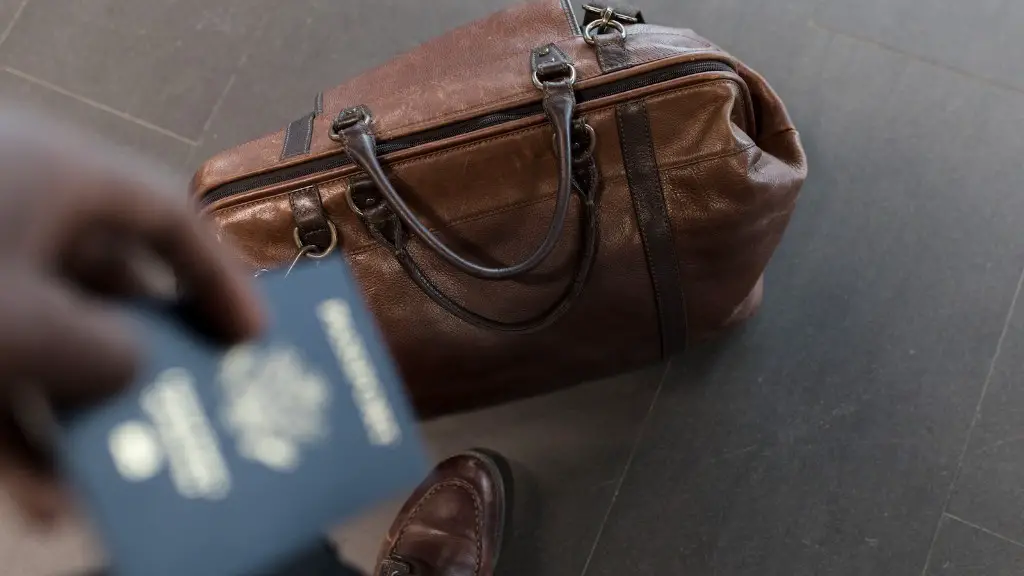Whether you’re planning a quick getaway or a long-awaited vacation, the last thing you want to worry about is what will happen if your plans have to change. That’s where travel insurance comes in. Travel insurance can provide coverage for unexpected expenses like change fees, so you can have peace of mind knowing that you’re covered no matter what happens.
The answer to this question depends on the specific travel insurance policy that you have. Some policies may cover change fees, while others may not. It’s important to read the details of your policy carefully to determine what is and is not covered.
What costs are covered by travel insurance?
When you purchase travel insurance, you are typically covered for a range of situations that may occur during your trip. This can include flight cancellation, lost or delayed luggage, and even theft or damage. However, one of the most important things that travel insurance can cover is medical expenses abroad. If you become sick or injured while traveling, your travel insurance can help to cover the cost of your medical care. This can be a vital protection, especially if you are traveling to a country with high medical costs.
In light of the COVID-19 pandemic, many airlines are waiving their change fees and offering customers either full refunds or credits for future travel. This is a measure to help customers who may need to change their travel plans due to the outbreak.
Does travel insurance cover flight time changes
Most travel insurance policies will cover flight changes that are due to reasons that are out of your control, such as severe weather or a medical emergency. However, you may have to pay a change fee if your flight change is due to a reason that is within your control, such as a change in your travel plans. Be sure to check the terms and conditions of your policy to see what is covered.
If your flight is delayed, comprehensive travel insurance typically covers canceled flights that delay your trip for at least 3–12 hours. If your flight is delayed more than 12 hours, you may even qualify for trip cancellation coverage, depending on your plan. This can give you peace of mind knowing that you are covered in the event of a delay.
What does travel insurance not cover?
If you’re thinking of cancelling or interrupting your trip due to the current outbreak of the novel coronavirus (COVID-19), you should know that most travel insurance policies will not cover you. That’s because cancellations and interruptions due to known, foreseeable, or expected events are generally not covered. So if you’re worried about contracting the virus or simply don’t feel comfortable travelling right now, you may be out of luck when it comes to getting reimbursed by your travel insurance.
Most travel insurance policies exclude pre-existing physical and mental health conditions, which means that if you have a pre-existing condition, you will not be covered by the policy. Some insurers will cover you if you pay extra, but commonly excluded conditions include bone and joint conditions.
What am I entitled to if my flight is changed?
A consumer is entitled to a refund if the airline made a significant schedule change and/or significantly delays a flight and the consumer chooses not to travel.
The study found that American Airlines is one of the most flexible airlines when it comes to change fees. The airline doesn’t have change fees on all domestic flights or short-haul and select long-haul international flights, and offers an option for a refundable ticket. This makes it a great option for travelers who may need to change their plans at the last minute.
How can I avoid changing flight fees
Many airlines will allow you to make changes to your flight without charging a fee if you do so within 24 hours of booking. If you have an increase in your status with the airline, this may entitle you to make changes without paying a fee as well. If you have trip cancellation insurance, this may cover the cost of making changes to your flight. You can also try calling customer service to see if they will waive the fee.
If you’re planning on going on a holiday, it’s a good idea to get travel insurance that includes cancellation cover. This way, if you have to cancel your trip due to an unforeseen circumstance, like an illness or injury, you’ll be covered financially.
What is covered in trip cancellation?
If you have to cancel your trip for an unforeseen covered reason, then Trip Cancellation Insurance will reimburse you for the amount of pre-paid, non-refundable travel expenses. This includes airline, cruise, train, hotel, and other expenses.
Trip Cancellation is a major concern for most travelers. The most common covered reason is unforeseen illness, injury, or death of the traveler, a traveling companion, or a non-traveling family member. Other common covered reasons include terrorism, inclement weather, or a natural disaster, among others.
Does travel insurance cover 100%
If you have to cancel your travel plans due to COVID-19 cases or quarantine recommendations, most policies will reimburse you 50% to 75% of your trip costs. This coverage can come in handy if you’re not comfortable traveling due to the pandemic.
Typically, if your flight is delayed, you will only be compensated for the number of hours that the delay lasted. So, if your travel insurance policy pays for ” $100 for every full 6 hours”, then you would only receive $100 even if your flight was delayed for 8 hours. This is something to keep in mind when choosing a travel insurance policy.
What are three types of travel insurance?
There are three types of travel insurance coverage: medical insurance, cancellation/interruption insurance, and luggage insurance.
Medical insurance covers the cost of medical care while you are travelling. This can include the cost of hospital stays, doctor visits, prescription medication, and evacuation back to your home country in the event of an emergency.
Cancellation/interruption insurance covers the cost of your trip if you have to cancel or interrupt it for a covered reason, such as a medical emergency or bad weather. This can include the cost of non-refundable airfare, hotel stays, and tour tickets.
Luggage insurance covers the cost of lost, damaged, or stolen luggage. This can include the cost of replacing essential items such as clothes and toiletries, as well as the cost of any items that are not covered by your regular home insurance policy.
We here at InsureMyTrip have compiled a list of the best medical coverage providers for travelers. Topping our list is GeoBlue, which offers comprehensive coverage for travelers around the world. Travelex and Allianz Travel Insurance are also great options for travelers looking for comprehensive medical coverage.
What do you need to tell travel insurance
When buying travel insurance, you will need to declare any existing medical conditions. If you are unsure whether to declare a condition, it is important to ask your insurance provider. Otherwise, you risk having any claim you make rejected.
If your flight is delayed or cancelled due to circumstances beyond the airline’s control, they will not be obligated to pay you any compensation. This includes things like political instability, natural disasters, riots, floods, government regulations, meteorological conditions, and security risks.
Final Words
Typically, travel insurance does not cover change fees.
There is no single answer to this question as policies can vary greatly. It is important to read the fine print of your policy carefully to determine what, if any, coverage is included for change fees. Some policies may cover change fees in certain circumstances, while others may not provide any coverage at all. In general, it is best to purchase travel insurance as soon as you book your trip to ensure that you are covered in case of any unforeseen changes or cancellations.





